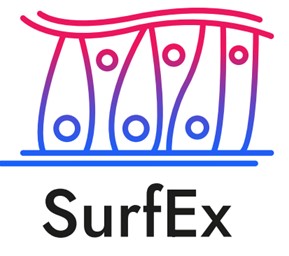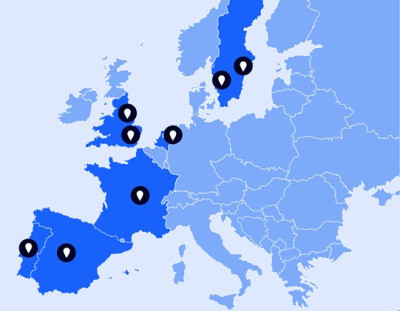News
Successful EU Doctoral Network grant - new organ-chip mechanobiology PhD available in Knight group
11 October 2023


Prof Martin Knight is part of a recently successful Horizon Europe Marie Skłodowska-Curie and UKRI funded Doctoral Network (MSCA DN) entitled “SurfEx”: Epithelial Exchange Surfaces – From organising principles to novel culture models of the gatekeepers of the body. We are now advertising a new PhD studentship based ain Prof Knight's organ-chip / mechanobiology research group within the Centre for Bioengineering at Queen Mary.
Epithelia are one of the major tissue types that make up the bodies of multicellular organisms. These tissues are sheets of interconnected cells that form the surfaces of our body and our organs, creating physical barriers that protect us from external dangers and control the exchange of materials with the outside environment. Given the essential roles of epithelia in the human body, defects in their functioning are associated with a broad range of diseases.
SurfEx is a MSCA Doctoral Network focused on studying the surface of epithelial cells. We unite academic and non-academic partners to develop new insights into the formation and functioning of epithelial tissues in health and disease. The top (apical) side of epithelial cells is responsible for the exchange of materials with the outside environment. The formation of a functional apical exchange surface requires complex rearrangements of the cytoskeleton, the formation of surface features like cilia or microvilli, and correct molecular specialization (proteins and lipids).
The SurfEx European research consortium is aiming to gain understanding of how the apical exchange surface is formed and functions in health and disease. We will combine basic research in small model organisms and cell culture with translational research using advanced 3D culture models that mimic epithelial tissues.
Prof Martin Knight, as one of the partners, is now advertising for a fully funded PhD studentship on mechanical, inflammatory, and pharmaceutical regulation of cell polarity and the role of primary cilia in a human kidney-organ chip model. This will be co-supervised with Prof Cleo Bishop (Faculty of Medicine and Dentistry). This multidisciplinary PhD project will determine how changes in apical/basal spatial positioning of primary cilia regulate fundamental epithelial mechanosensitivity and kidney health.
Application portal: https://www.qmul.ac.uk/jobs/vacancies/items/9027.html
Deadline 15th November 2023
Please note the strict EU rules of mobility - candidates must not have resided or carried out their main work or studies in the UK for more than 12 months in the 3 years immediately before the recruitment date.
Further information available on the SurfEx website.
| People: | Martin KNIGHT |
Updated by: Martin Knight




